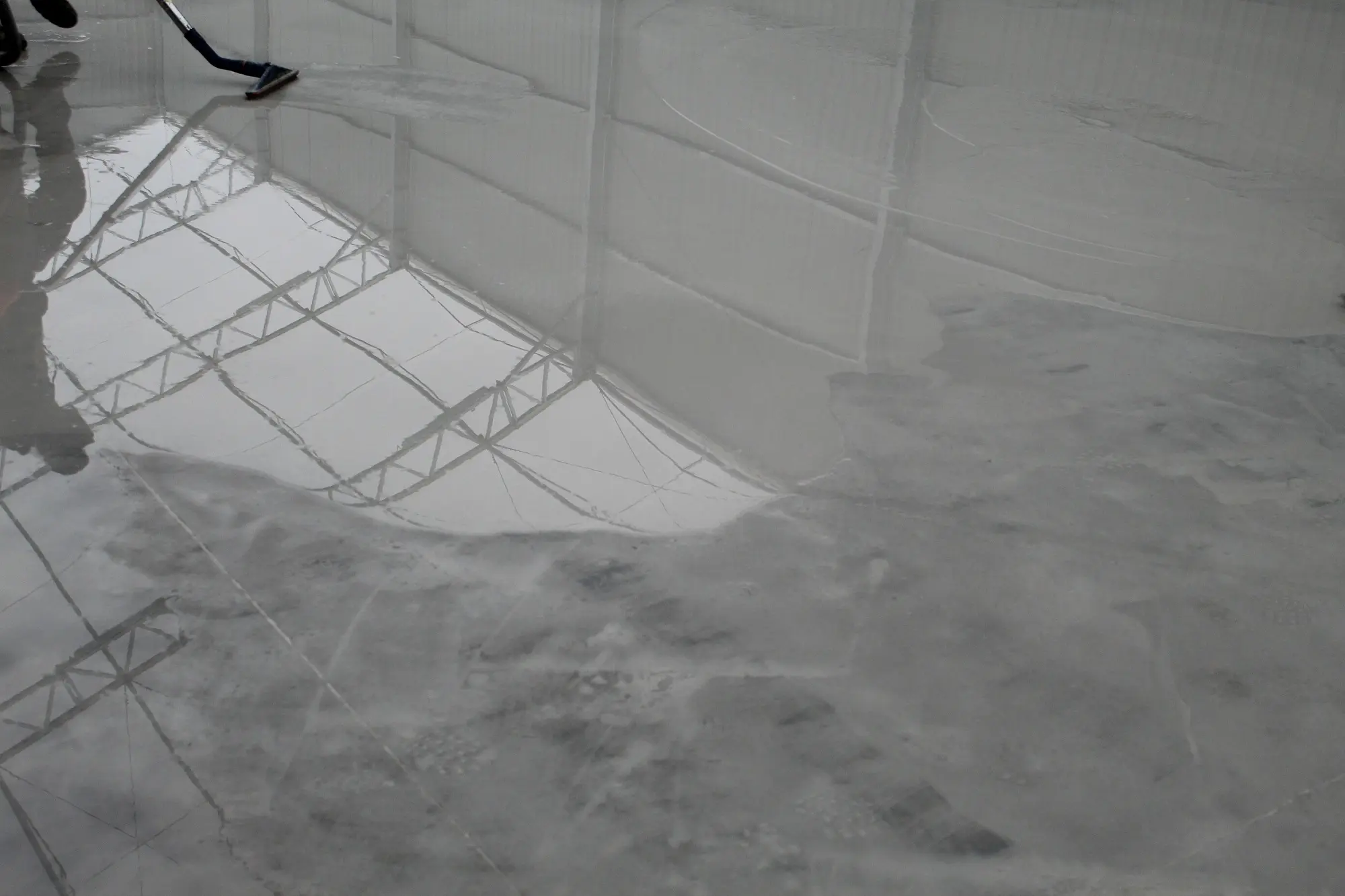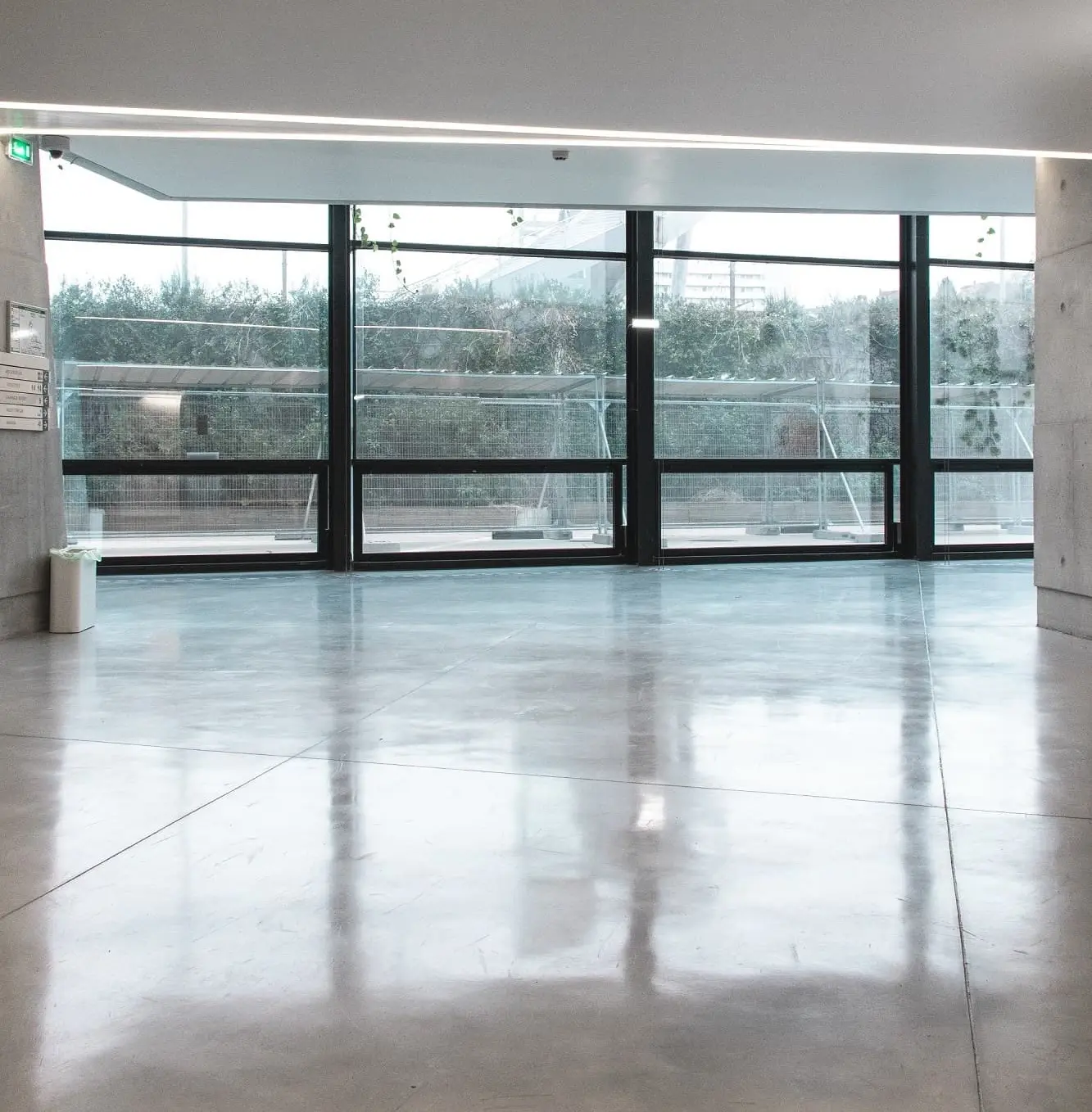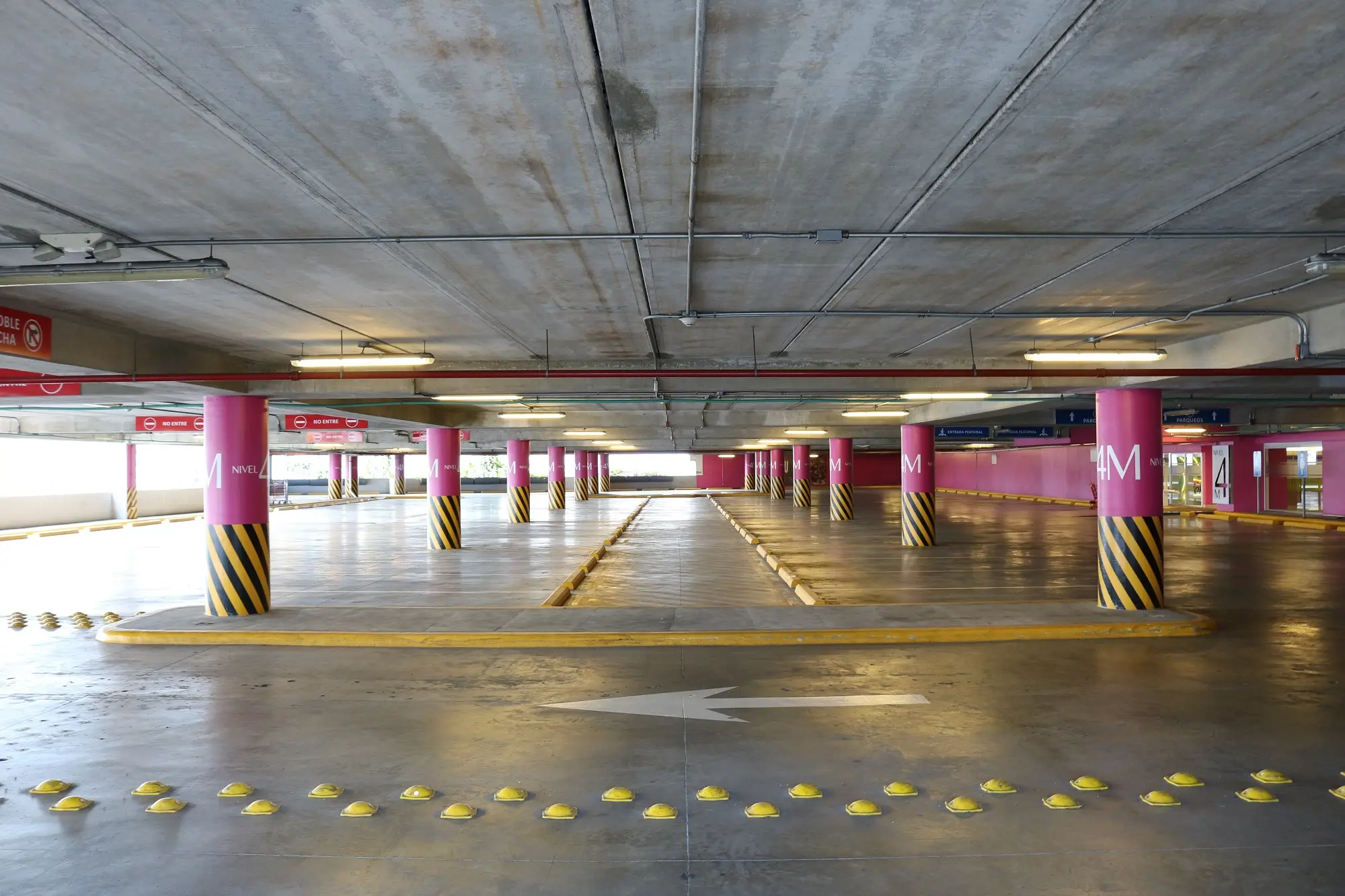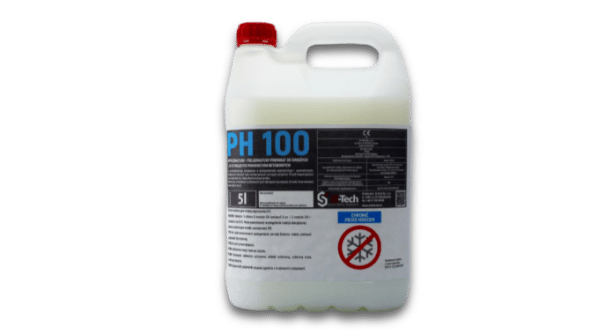
These modern means allow you to extend the life and strengthen the concrete industrial floor. Impregnating concrete is by far the best way to protect the floor but also to finish it! They can be used for any concrete surface, as well as paving stones or architectural concrete. In the following text we will try to tell you everything we know about the impregnation of concrete surfaces, among other things we will tell you how to choose the best impregnator for your individual needs, what to pay special attention to when choosing one, and how to protect different types of surfaces.
WHAT IS CONCRETE IMPREGNATE?
Impregnate is a modern coating that allows to preserve the properties and structure of the surface covered with it, both indoors and outdoors. Impregnate for concrete is a chemical agent – a mixture of resins, soluble wax, solvents and other substances that penetrate deep into the material, effectively protecting it from the destructive effects of moisture, aging, mechanical and other factors whose action on unprotected concrete could contribute to its premature degradation.
Another way to protect the surface of concrete (such as architectural concrete) is to use a special varnish (such as Meteor Lakpur polyurethane varnish) as a coating impregnant. The coating impregnant consists of synthetic and natural resins and drying oils. It does not penetrate so thoroughly into the structure of the material, but instead creates a coating protective layer, resistant to UV rays, additionally giving the elements painted with it an elegant finish and emphasizing their color and structure. This method of impregnation is worth using in spaces where the visual effect of the floor is as important as its functionality. Depending on your needs or requirements, you can adjust not only the color of the varnish (it can be transparent as well as produced in any color from the RAL palette), but also its finish. In the case of Meteor Lakpur varnish, a matte and satin option is available.
As in the case of paints based on natural and synthetic resins in waterproofing, a solvent or water is used for dilution. In some paint products we will also meet hardening agents as an additional element to improve the smoothness of the surface.
WHAT DOES IMPREGNATION OF CONCRETE GIVE?
Impregnation protects the structure of the composite from moisture absorption and makes it resistant to mechanical damage. However, this is not the only advantage of using these agents. Impregnating concrete strengthens it and increases its resistance to abrasion. This is especially important for terrace slabs, paving stones or other elements located on walkways subject to constant use. In addition to improving the appearance, it prevents dusting of concrete surfaces, which is a natural process during use.
Impregnants for concrete surfaces also make it easier to take care of the elegant appearance of these elements. They strengthen and enhance the color, prevent moss overgrowth, and make cleaning easier. They reduce discoloration and, thanks to the coating created, prevent the absorption of dirt.
Also available on the market are impregnants for concrete that have substances with hydrophobic properties in their composition, which “repel” water, not allowing it to penetrate deep into the composite. This method of impregnation is an excellent option for surfaces exposed to weather conditions, such as maneuvering yards, driveways or even road concretes.

WHAT ARE THE TYPES OF IMPREGNATES FOR CONCRETE?
There are two types of impregnants – penetrating ones with hydrophobic properties and coating ones, whose task is to protect against the absorption of dirt and facilitate the subsequent care and maintenance of the floor. Both types of impregnating preparations have natural and synthetic resins in their composition, but they differ in water and solvent content. Penetrating impregnant for concrete has less resin in its composition than varnish, so it easily penetrates deep into the structure of the material, strengthening it from the inside. For the varnishing process, a thick and viscous substance is needed to create a coating of sufficient thickness on the surface. The selection of a suitable impregnant is worth coordinating with the type of flooring, its purpose and planned loads. However, if we want to give our elements maximum protection, it is worth applying the impregnant first, and after it dries, paint the surface with varnish.
IMPREGNATION OF CONCRETE. WHEN IS THE BEST TIME TO CARRY OUT IMPREGNATION?
In general, you should wait for the substrate to season and dry thoroughly. However, do not delay too long – so that the surface of the floor does not yet appear furrows, cracks and micro-scratches. Poorly carried out impregnation of concrete surfaces will not have the expected effect and the material may continue to “drink” water. Impregnation for concrete brings excellent results, but you need to remember first of all the manufacturer’s instructions. Most of the impregnants in our offer can be used both on newly made concrete floors, protecting them from too rapid loss of water, and already existing surfaces, strengthening them, protecting them from dust and reducing water absorption. Proper application of the product can protect the elements even for several years, which, in addition to aesthetics, will also bring financial benefits.
We offer formulations that can be used sequentially, further strengthening the structure of the industrial floor. Particularly demanding and constantly used surfaces, such as parking lots or driveways, should be protected in this way. Successive layers of impregnation create an extremely durable and impenetrable coating, which, in addition to moisture resistance, provides protection against UV rays and discoloration, and the demonstrated hard-elastic properties allow it to work properly even under high loads.
TYPES OF IMPREGNATES FOR CONCRETE SURFACES IN SI-TECH’S OFFER
| Si-Tech concrete impregnant | Product characteristics | Application area | Average product consumption and performance |
| P100 | Solvent-based dispersion of acrylic resin | Newly constructed and existing concrete substrates, surface hardened floors, high quality concretes, maneuvering yards, parking lots, exterior roads | Existing concretes: approx. 0.1-0.3 l/m² Fresh concretes: 0.08-0.12 l/m² *depending on substrate absorption and weather conditions |
| P200 | Solvent-based acrylic resin dispersion with reduced odor | Newly constructed and existing concrete substrates, surface hardened floors, high quality concretes, maneuvering yards, parking lots, exterior roads | Existing concretes: approx. 0.1-0.3 l/m² Fresh concretes: 0.08-0.12 l/m² *depending on substrate absorption and weather conditions |
| P300 | Solvent-based dispersion of acrylic resin | Newly constructed and existing concrete substrates, surface hardened floors, high quality concretes, maneuvering areas, parking lots, outdoor roads (due to the intense odor, use the product outdoors or only in open areas without the presence of third parties) | Existing concretes: approx. 0.1-0.3 l/m² Fresh concretes: 0.08-0.12 l/m² *depending on substrate absorption and weather conditions |
| PH100 | Aqueous dispersion of acrylic resin, milky liquid | Newly constructed and existing concrete substrates, surface hardened floors, high quality concretes, maneuvering yards, parking lots, exterior roads | approx. 0.1 l/m²
*depending on substrate absorption and weather conditions |
| PHW100 | Aqueous paraffin emulsion | Industrial floors, road concretes, airport exteriors, concrete yards, screeds | approx. 0.1-0.3 l/m²
*depending on substrate absorption and weather conditions |
How often to perform impregnation?
The frequency of use of protective measures depends on the planned use of the floor, loads, and the technology used, the type of concrete or construction chemicals used. Particular attention should be paid to surfaces that are exposed to constant exposure to weather conditions. Therefore, impregnation of exterior surfaces, driveways, paving stones or concrete squares can be carried out even every two years. It is worth mentioning that these are relatively low-cost procedures, and their effects, in addition to the durability of the protected structure, significantly increase the aesthetic value of the surface.
Also, always read the manufacturer’s instructions on the packaging. Any impregnation for concrete can be used repeatedly, but at appropriate intervals. Floors located indoors can be protected less frequently – it is enough to renew the impregnation once every five-seven years, depending on use. This applies mainly to surfaces not subject to intensive abrasion or flooding with liquids. However, it is worthwhile to discuss the issue of repeated impregnation or taking other possible steps with the technologist and manufacturer of the applied care product.

impregnation of old concrete surfaces – how to do it?
This is quite a difficult and more labor-intensive task, but it is doable. Impregnating old concrete will not bring as good results as it does with fresh surfaces, but it will affect the durability of the structure and its appearance. The work may require specific skills, so watch some videos on the Internet or ask an experienced builder for advice. Do not forget to buy the right waterproofing – not everyone is suitable for old (existing) concrete surfaces.
Before waterproofing is started, the old concrete must be checked for dryness. Then it needs to be cleaned of dirt, thoroughly sanded and dusted, washed and thoroughly vacuumed with a professional industrial vacuum cleaner, which will remove any residue that may hinder further operations. After the floor has been properly prepared and dried, an impregnating agent can be applied, according to the manufacturer’s recommendations. Given the degree of exploitation of the floor, it is worthwhile to further strengthen it with a penetrating impregnation (this type of penetrating reinforcement can provide, for example, silicate-based preparations), and then apply a coat of varnish, which will close and seal the surface of the concrete. However, if you are not sure what technology to use or what steps to take, it is worth consulting our sales and technical department, which will determine the condition of the floor and help you choose the most appropriate methods of action and floor chemistry.

 Impregnate for concrete P100
Impregnate for concrete P100  Impregnate for concrete P200
Impregnate for concrete P200  Impregnate for concrete P300
Impregnate for concrete P300  Impregnate for concrete PH100
Impregnate for concrete PH100  Impregnate for concrete PHW100
Impregnate for concrete PHW100